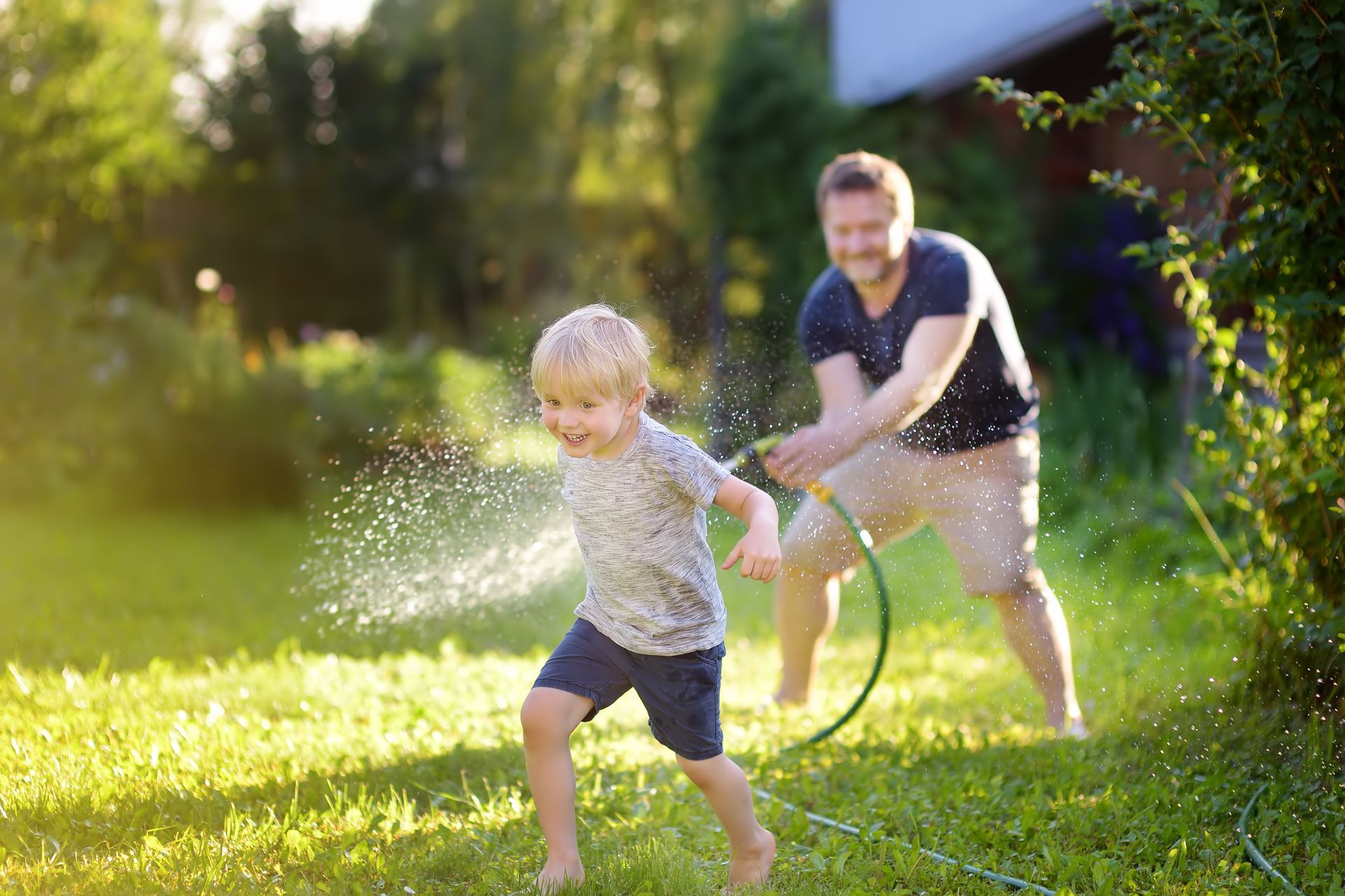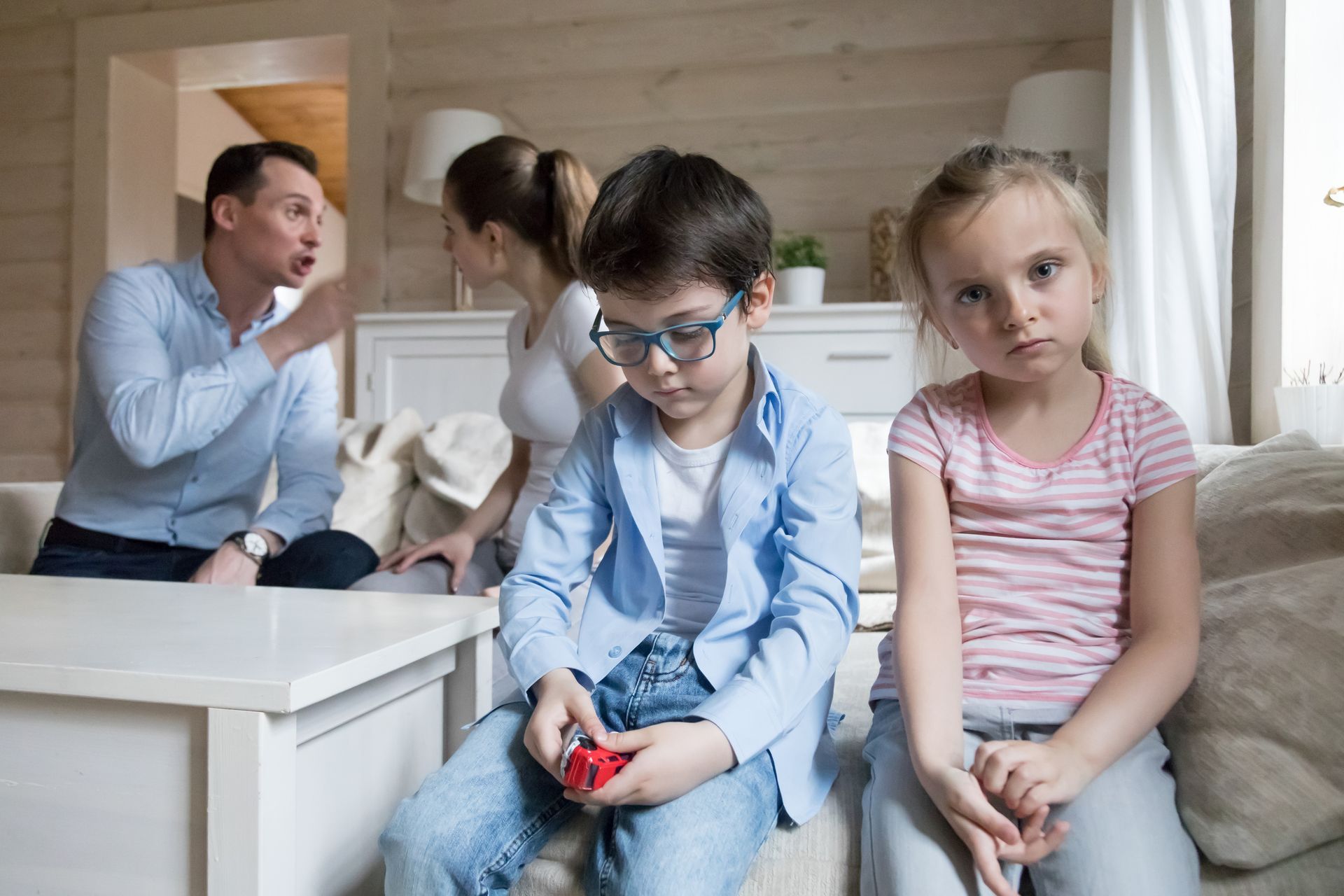Blog
HOME / BLOG

Divorce is one of the hardest transitions a family can face. While parents may be focused on court orders, schedules, and finances, children are often quietly trying to make sense of the changes in their world. Kids don’t always have the words to explain what they’re feeling, but if they could speak openly, here are some of the things many would want their parents to know. 1. “It’s not my fault.” One of the biggest fears children carry during divorce is that somehow they caused it. Even if you think it’s obvious, kids may believe that their behavior, grades, or even something they said led to the separation. They need to hear, often and clearly, that the divorce is not their fault. 2. “Please don’t make me choose.” Children love both parents, and being asked to take sides—or even feeling subtle pressure—can be heartbreaking. When parents use kids as messengers or speak badly about the other parent, it puts children in an impossible position. What they want most is to feel free to love both parents without guilt. 3. “I need to know what’s going to happen.” Uncertainty is scary. Kids want to know where they’ll live, what their routine will look like, and when they’ll see each parent. Predictability provides comfort. Even if you don’t have all the answers, reassuring them that you’ll figure things out and keep them informed helps reduce their anxiety. 4. “I still need to be a kid.” Divorce can sometimes make kids feel like they have to grow up faster. They may try to comfort you, take care of younger siblings, or take on adult responsibilities. But children need time to play, have fun, and just be kids. They’re asking for the space to do that without the weight of adult problems. 5. “I’m watching how you handle this.” Children are always learning from their parents—even in times of stress. They notice how you communicate, solve problems, and manage your emotions. Showing respect, even in tough moments, models resilience and healthy coping skills that your children will carry into their own relationships one day. Final Thoughts During divorce, children need reassurance, stability, and love more than ever. While parents may not be able to shield them from every difficulty, listening to what kids need can make all the difference. By putting their well-being first and keeping communication open, you can help them feel safe, supported, and loved through one of life’s hardest transitions. This post was written by Chelle Hendershot, who is a dedicated Mediator, Guardian ad Litem, and Parenting Coordinator at Hope For Our Future, LLC, with a passion for helping individuals and families navigate through life's most challenging moments. This post is not intended to be legal advice and is for marketing purposes only.

Talking to children about divorce is one of the hardest conversations a parent can face. You may be filled with your own emotions—guilt, sadness, worry—but your child needs your calm, honest, and age-appropriate guidance to make sense of what’s happening. No matter how old they are, kids need reassurance that they are loved and that the divorce is not their fault. Here’s how to talk to children about divorce in a way that supports their development and emotional well-being—tailored to their age and stage. Toddlers and Preschoolers (Ages 1–5) At this age, children won’t fully understand what divorce means, but they will sense stress and changes in their routine. They need simple explanations and consistent reassurance. What to say: “Mommy and Daddy are going to live in different houses. You didn’t do anything wrong. We both love you and will always take care of you.” What helps: Keep routines as consistent as possible. Use books or toys to help explain changes. Expect regressions in behavior—this is a normal way they process change. Avoid negative talk about the other parent. Early Elementary (Ages 6–9) Kids this age can understand that divorce means their parents won’t live together anymore, but they may still believe it’s their fault. They often worry about what will happen to them and may feel torn between both parents. What to say: “We both love you, and we’ve decided we won’t be married anymore. It’s not your fault. You’ll still get to spend time with both of us.” What helps: Be prepared to repeat information often. Answer questions calmly, even if they’re asked repeatedly. Let them know it’s okay to love both parents. Give them ways to stay connected to each parent, like a shared journal or photo book. Tweens (Ages 10–12) Older children can understand more about relationships and may want more details. They may feel angry, embarrassed, or worry about what their friends will think. This age group benefits from honesty and a chance to express their emotions. What to say: “We’ve had problems for a while, and we’ve decided this is the best choice for our family. We know it’s a big change, and we’re here to talk whenever you need.” What helps: Acknowledge their feelings—even if they’re negative. Avoid putting them in the middle or asking them to take sides. Give them a sense of control, like letting them help decorate their new bedroom or choose the calendar for parenting time. Watch for withdrawal or changes in school or social behavior. Teens (Ages 13–18) Teens understand complex emotions and may have strong opinions. They might blame one parent, shut down emotionally, or try to take on adult responsibilities. Some may act like they don’t care, but underneath, they are often deeply affected. What to say: “We know this affects you, and we want to be open and honest. You don’t have to take sides. We’ll keep working together to make things as stable as possible for you.” What helps: Encourage open dialogue but don’t force it. Give them time and space to process. Continue to set boundaries and expectations—don’t let guilt lower your parenting standards. Consider counseling if they’re struggling. Tips for Every Age Be a united front. If possible, plan what you’ll say together and talk to your child as a team. Stick to age-appropriate language. Avoid oversharing adult details. Reassure them often. Kids need to hear that both parents love them and that things will be okay. Keep communication open. Let them know they can always come to you with questions. Take care of yourself. Children pick up on your stress. Make space for your own healing so you can support theirs. Final Thoughts Your child doesn’t need a perfect explanation—they need your love, honesty, and support. Divorce is a huge life transition, but with thoughtful communication and consistency, kids can adapt and even thrive. You don’t have to have all the answers. Just being present and listening can make all the difference. If you're co-parenting, it’s also helpful to keep your message consistent between homes. When both parents commit to supporting the child emotionally, it lays the foundation for resilience and emotional health. This post was written by Chelle Hendershot, who is a dedicated Mediator, Guardian ad Litem, and Parenting Coordinator at Hope For Our Future, LLC, with a passion for helping individuals and families navigate through life's most challenging moments. This post is not intended to be legal advice and is for marketing purposes only. Photo Credit: 2856770 Childhood Stages Thomas Perkins Dreamstime.com

When summer rolls around, there’s a lot of pressure to make it memorable. Social media is filled with big vacations and expensive outings but the truth is, kids don’t need fancy trips to have fun. They just need your time, a little imagination, and a chance to explore. Backyard adventures can be some of the most meaningful moments for kids no packing, no driving, and no entrance fees required. Whether you’re a full-time parent or co-parenting with a schedule, these easy ideas can fit into almost any day. Here are some simple and budget-friendly backyard activities to try this summer. 1. Backyard Obstacle Course Use what you already have pool noodles, hula hoops, boxes, or jump ropes to build an obstacle course. Let your kids help design it and take turns timing each other. Add a sprinkler at the end for a splashy finish. 2. DIY Nature Scavenger Hunt Make a list of simple things to find: a red leaf, a bug, something soft, something round. Print it out or draw it together. This is a great activity for all ages and can turn an ordinary yard into a world of discovery. 3. Campout at Home Set up a tent or make a fort with blankets under the stars. Add flashlights, s'mores in the microwave, and some campfire stories. You don’t have to sleep outside to make it magical. 4. Sidewalk Chalk Art Festival Give kids chalk and let them turn the driveway into an art gallery. Add a twist with chalk games like hopscotch, four-square, or drawing prompts (“draw your dream pet”). 5. Water Balloon Piñata Fill balloons with water, tie them from a tree branch, and take turns swinging at them with a plastic bat or stick. It’s fun, hilarious, and perfect for a hot afternoon. 6. Mud Kitchen or Nature Play Station Old pots, pans, spoons, and a little dirt and water can keep little ones busy for hours. Add flowers, leaves, or food coloring for extra fun. Let them make “recipes” and serve you backyard delicacies. 7. Backyard Movie Night Use a sheet and a projector (or just a laptop on a table) and show a family movie outside. Popcorn, pillows, and blankets turn it into a full event. This works great for parenting time evenings. 8. Bug or Bird Watching Station Set up a small observation zone with binoculars, a notebook, and a bird guide or app. Encourage kids to draw or write down what they see. It’s a quiet activity that builds focus and wonder. 9. Lemonade Stand (Even If It’s Just for You) Let kids make and decorate their own lemonade stand even if they’re just serving the family. It’s a fun way to play pretend, practice math, and feel a sense of accomplishment. 10. Frozen Toy Rescue Freeze small toys in a container of water. Give your child tools like spoons, salt, or spray bottles to “rescue” the toys from the ice. It’s simple sensory fun and science rolled into one. Why These Moments Matter You don’t need to go anywhere to make memories. When children look back on summer, it’s the laughs, the silliness, and the time spent together that they’ll remember most. These activities are also great for building connection during parenting time transitions, helping children feel grounded and safe. Backyard fun gives you a way to be fully present no distractions, no stress, just joy. This post was written by Chelle Hendershot, who is a dedicated Mediator, Guardian ad Litem, and Parenting Coordinator at Hope For Our Future, LLC, with a passion for helping individuals and families navigate through life's most challenging moments. This post is not intended to be legal advice and is for marketing purposes only. Photo Credit: 147432855 Marysmn Dreamstime.com






